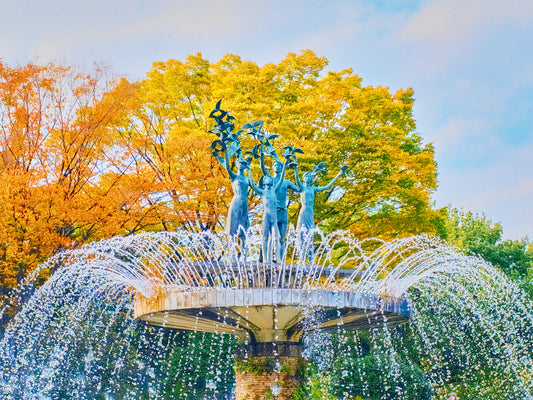Shotengai Magazine

Showa Commemorative National Government Park: R...
Showa Commemorative National Government Park (Showa Memorial Park) is a national park built on the former site of the Tachikawa Airfield to commemorate the 50th anniversary of the reign of Emperor Showa....
Showa Commemorative National Government Park: R...
Showa Commemorative National Government Park (Showa Memorial Park) is a national park built on the former site of the Tachikawa Airfield to commemorate the 50th anniversary of the reign of Emperor Showa....

Japanese Scenery (VIII): Kurashiki Bikan Histor...
Kurashiki Bikan Historical Quarter is more than a collection of historic buildings; it is a living testament to the enduring beauty and cultural heritage of traditional Japan. From its elegant streetscapes to...
Japanese Scenery (VIII): Kurashiki Bikan Histor...
Kurashiki Bikan Historical Quarter is more than a collection of historic buildings; it is a living testament to the enduring beauty and cultural heritage of traditional Japan. From its elegant streetscapes to...

Kenroku-en: The Ultimate Guide
Kenroku-en, which translates to "Garden of the Six Attributes," has a history dating back over 300 years. Initially created by the ruling Maeda family during the Edo period, the garden...
Kenroku-en: The Ultimate Guide
Kenroku-en, which translates to "Garden of the Six Attributes," has a history dating back over 300 years. Initially created by the ruling Maeda family during the Edo period, the garden...

The Best Souvenirs in Japan: The Ultimate List ...
Japan offers a wealth of unique and fascinating products that make great souvenirs or gifts. Whether you're interested in ceramics, beauty products, snacks, stationery, or fashion, Japan has something for...
The Best Souvenirs in Japan: The Ultimate List ...
Japan offers a wealth of unique and fascinating products that make great souvenirs or gifts. Whether you're interested in ceramics, beauty products, snacks, stationery, or fashion, Japan has something for...

Tokyo vs. Osaka: Which City Suits You Better?
Osaka and Tokyo are the two cities that most people think of when they think of Japan. Tokyo is a giant megapolis, while Osaka has earned an impressive 10th place on...
Tokyo vs. Osaka: Which City Suits You Better?
Osaka and Tokyo are the two cities that most people think of when they think of Japan. Tokyo is a giant megapolis, while Osaka has earned an impressive 10th place on...

Sanrio: The Most Kawaii Brand
Sanrio was founded in 1960 by Shintaro Tsuji, and has since become an iconic brand known for its cute and charming designs. Its colorful and imaginative designs have brought joy and...
Sanrio: The Most Kawaii Brand
Sanrio was founded in 1960 by Shintaro Tsuji, and has since become an iconic brand known for its cute and charming designs. Its colorful and imaginative designs have brought joy and...
